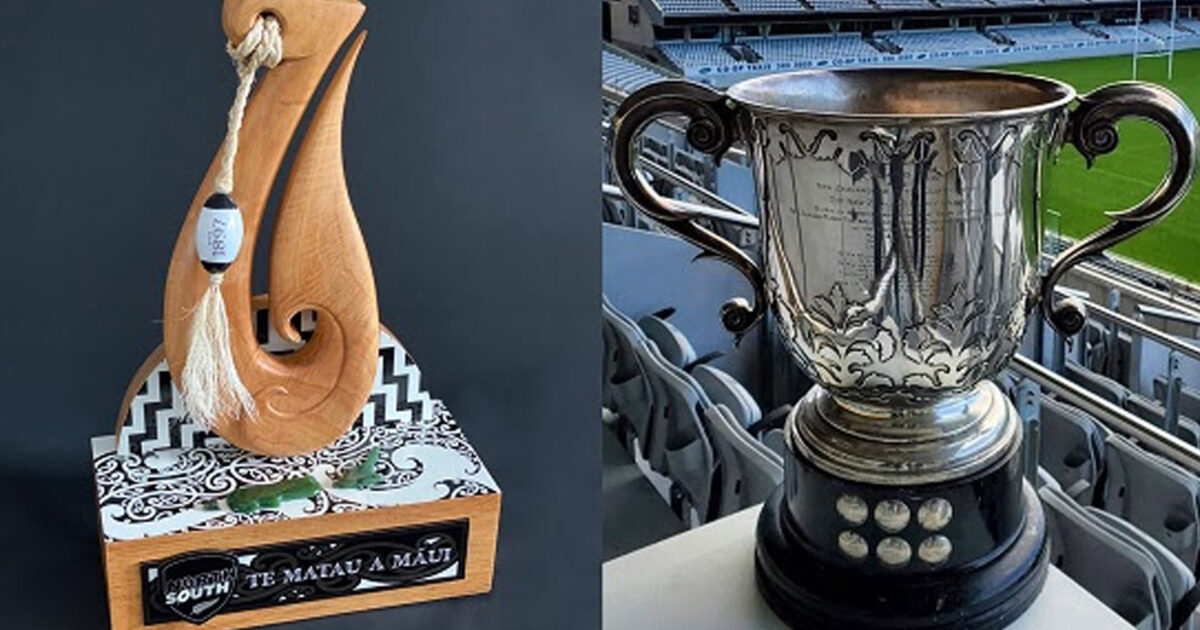Two teams, two trophies: Re-emergence of long-lost cup means winning North v South side will be seeing double

Two trophies of different eras and origins will be up for grabs during the North v South match with the Te Matau a Maui – The Fishhook of Maui – unveiled in Wellington today.
Te Matau a Maui, a carved rimu fish hook on a kauri base, will be presented to the winning team at Sky Stadium on Saturday night alongside the recently discovered Loving Cup, a trophy first presented to the 1924 All Blacks nearly a century ago.
Designed and carved by Ngai Tahu father and son, John and Dave Burke, Te Matau a Maui celebrates the M?ori creation story of New Zealand’s two main islands Te Ika a Maui and Te Waka a Maui.
The Burkes, originally from Otepoti in Dunedin and now resident in Tauranga, were invited to create a new trophy after a New Zealand Rugby (NZR) search for the Loving Cup initially failed to find a piece of silverware first contested during the North v South match in 1932.
New Zealand Rugby Maori Cultural Advisor Luke Crawford said it was serendipitous that as the carver was finishing Te Matau a Maui for a new generation of players, the Loving Cup was suddenly rediscovered in the bowels of Eden Park after being lost for 88 years.
https://www.instagram.com/p/CEnpmZDFwzS/
“The Steinlager North v South Match has a long and rich tradition and both trophies pay homage to what the rivalry is all about, albeit representative of different eras. It’s fitting that they will be side-by-side as this traditional contest is revived in 2020.”
In Maori mythology the demi-god Maui-tikitiki-a-Taranga fished up Te Ika a Maui (the great fish of Maui) from his canoe Te Waka a Maui (the canoe of Maui) so was ideally fitted for a contest between Aotearoa’s two main islands, Crawford said.
“The story of Maui recounts the battle between a fish and a fisherman where the strategies and tactics employed by both sides eventually led to the formation of Aotearoa, so similar to the sort of contest we will see at Sky Stadium on Saturday.
“When thinking about what connects a fish to the fisherman, the obvious answer was the hook and line and thus Te Matau a Maui took shape.”
Te Matau a Maui also features three pieces of pounamu depicting the North Island, South Island and Stewart Island, which is seen as the anchor of Maui’s canoe.
A graphic design includes the historical black and white colours of the North and South teams, while a taura (rope) features a rugby ball shaped toggle with the date 1897, the year the North v South match was first played.
The 60-centimetre tall sterling silver Loving Cup was discovered in August this year after historian Ian St George went public with his search for the old cup while working on a book about a Kiwi silent film star living in London.
If the 2020 Steinlager North v South Match is drawn, as has been the case on three previous occasions, both trophies will be shared by the two teams.










































































